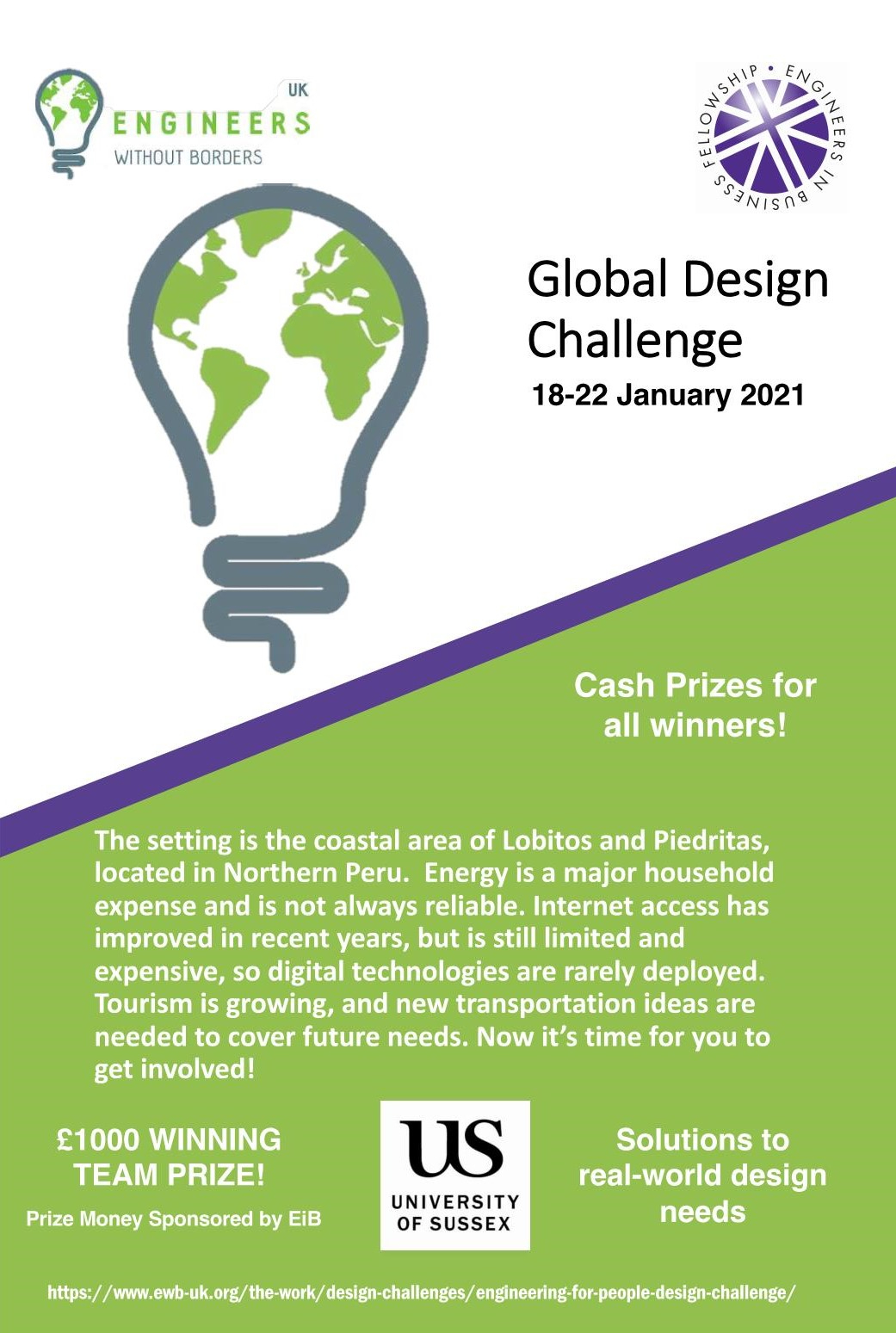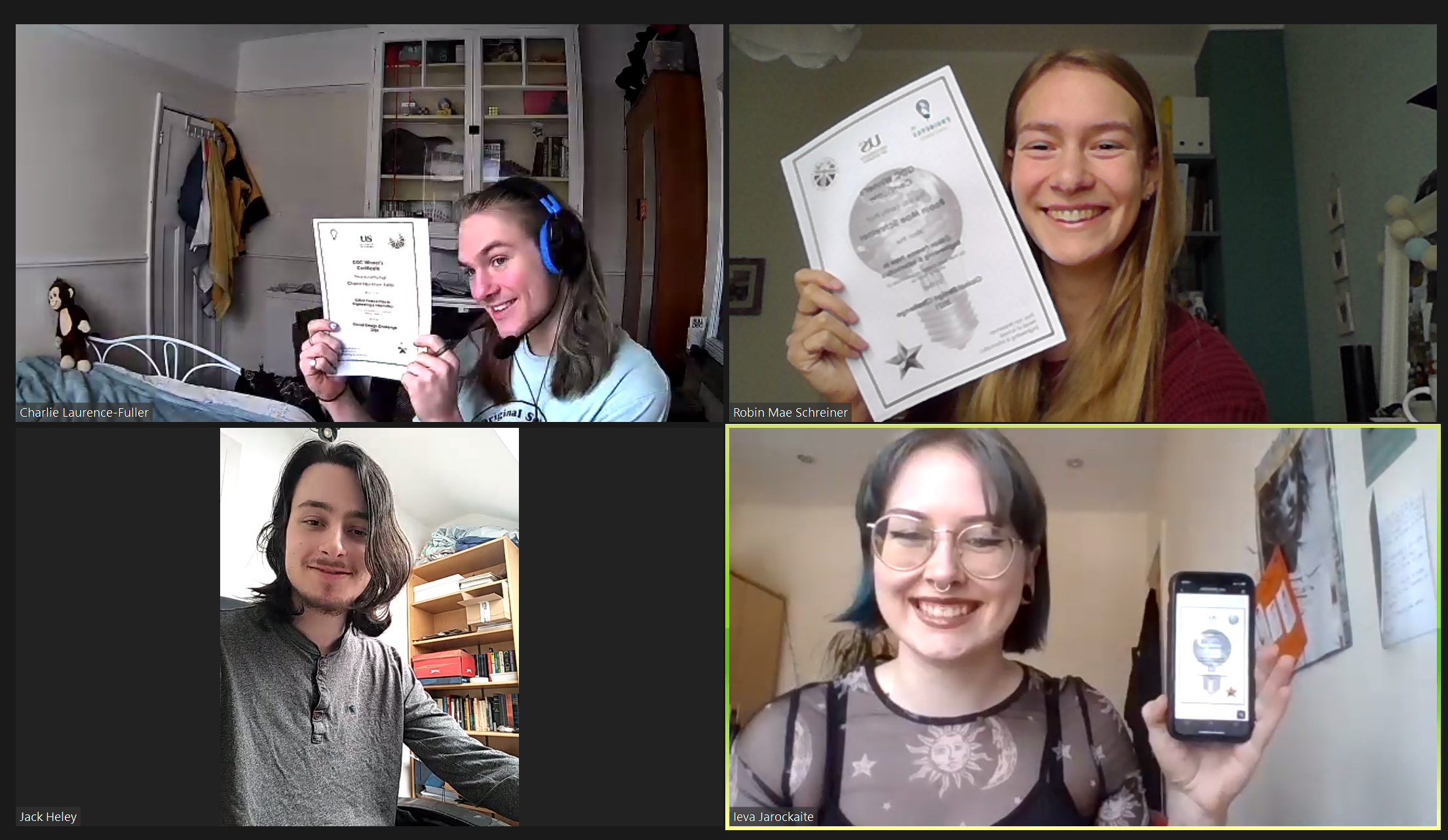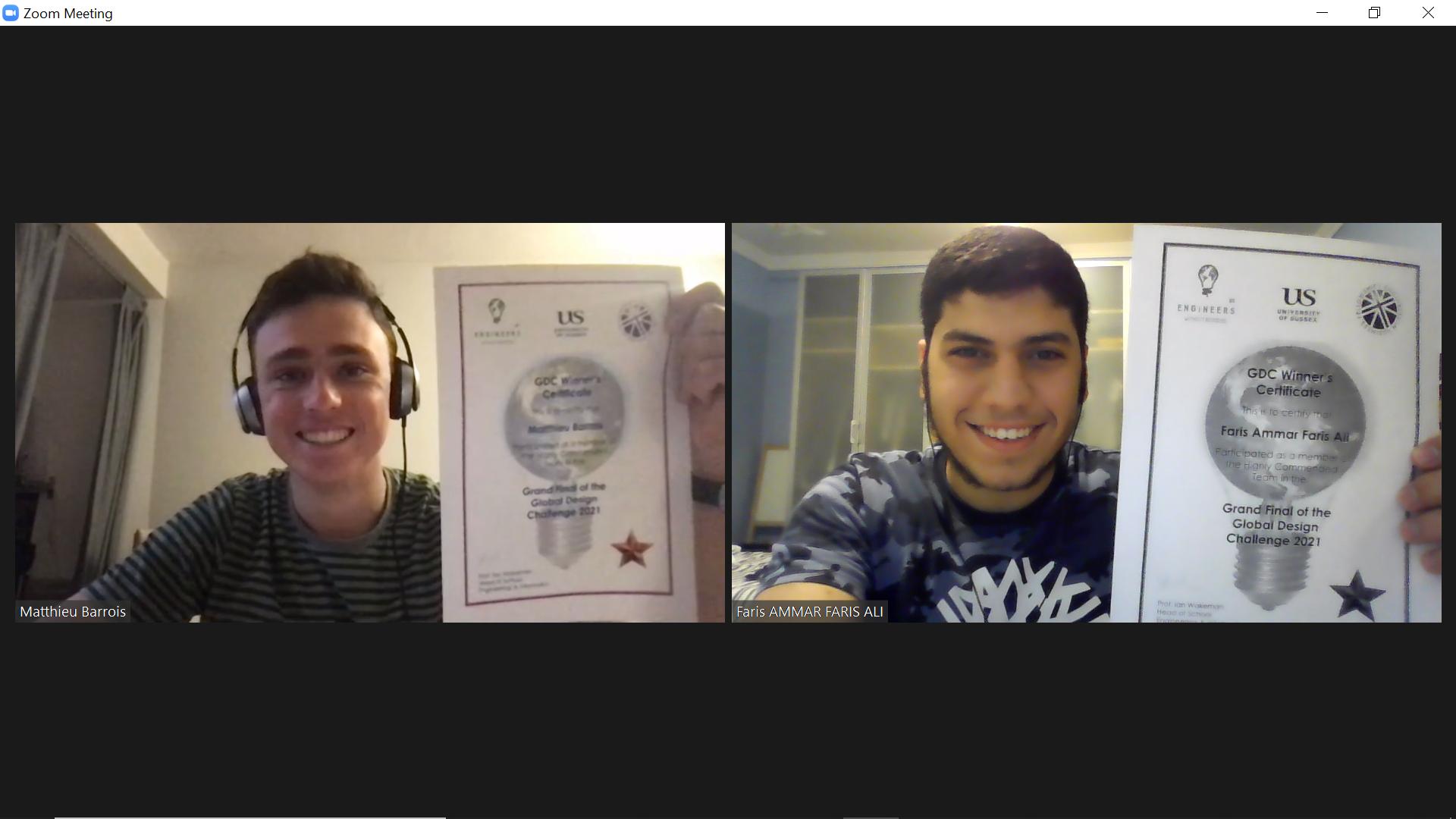Global Design Challenge – 2021
Back to Competitions | The Global Design Challenge (GDC) module is compulsory for all first-year students studying Engineering, Informatics, and Product Design at the School of Engineering and Informatics, and students from the International Study Centres. In terms of motivating students at Sussex, the contribution of Engineers in Business was crucial. Three hundred and fifty-one students working in interdisciplinary teams of five members tackled real-world sustainable development problems. This year’s design challenge was focused on the coastal area of Lobitos and Piedritas, located in Northern Peru. The three design areas covered in the challenge were Energy, Digital and Transport. Energy is a major household expense in Lobitos and Piedritas and is sometimes not reliable. Internet access has improved in recent years but is still limited and expensive, so digital technologies are rarely deployed. Tourism is growing, and new transportation ideas are needed to cover future needs. Students were asked to select one of these design areas and develop a solution that could be implemented in the coastal area of Lobitos and Piedritas. Each team developed a creative design solution based on design areas suggested by Engineers Without Borders UK. This year the Global Design Challenge took place online, with extensive support from trained facilitators who guided teams through activities and the design process. Prizes were awarded at the end of the week for Hub winners. The winning teams then competed at the Global Design Challenge finals, with the winners receiving £275 each (Gillian Pearce Prize), second place £175 each, and third place £50 each. |


Winner: The Gillian Pearce Prize funded by Engineers in Business - £1,100 team award
Jack Heley (BSc Product Design), Eve Jarockait (BSc Computer Science), Charlie Laurence-Fuller (BEng Mechanical Engineering with an industrial placement year) and Robin Mae Schreiner (BSc Computer Science and Artificial Intelligence).
The team created an energy-efficient and low-cost solution for a cooling mechanism in the houses of locals which functions even during electricity outages, thus allowing for more comfortable living for individuals and families and can also be used in shops, restaurants and other businesses.

Runners-up
Harrison Finn Drew, (MEng Mechanical Engineering with an industrial placement year), Yimou Liu (BSc Computing for Digital Media), Ryan Dale (BSc Computer Science and Artificial Intelligence), Flynn Mackay (BEng Mechanical Engineering), Jacob Moore (BSc Computer Science and Artificial Intelligence (with an industrial placement year) were awarded a £875 Engineers in Business Prize. Pictured are Harrison Drew (top left), Ryan Dale (top right) and Jacob Moore (Middle).
This team designed a suspended hybrid energy farm to provide an alternative energy source that is sustainable and also provides an eco-tourist attraction.

Highly Commended
Two members of the team are pictured- Matthieu Barrois (BSc Product Design with an industrial placement year) and Faris Ammar Faris Ali (Study Group International). The other team members are Mahima Khalid Halai-Patel (BSc Computing for Digital Media with an industrial placement year), Natalie Hughes (BSc Computer Science (with an industrial placement year) and Philip Obazee (BSc Computer Science and Artificial Intelligence) – £250 Engineers in Business Prize were awarded to the team.
This team designed a simple, cost-effective and modular wind turbine that will not only reduce the overall cost of electrical bills but also cover the regular power outages. This is a long-term project as the money saved on bills, will enable villages to build more and more turbines, to the point where they become electrically independent.
Positive feedback
The Global Design Challenge is one of the most valuable learning experiences for these students in their entire degrees and we are looking to expand it to other degree subjects. In terms of motivating students at Sussex, the contribution of Engineers in Business was crucial.
The School of Engineering and Informatics would like to thank the EIBF for providing a prize fund of £3,000 for this year’s Global Design Challenge. This sponsorship encouraged students to develop skills such as the integration of social, environmental and economic sustainability into the product design process, understand the importance of community consultation and involve users in the evaluation of products and designs. Both faculty and management at Sussex believe that this module is a paradigm of what students need to learn in 2021 and would like to express their gratitude to Engineers in Business for its support.
Dr Blay Whitby, Module Convenor
University of Sussex
